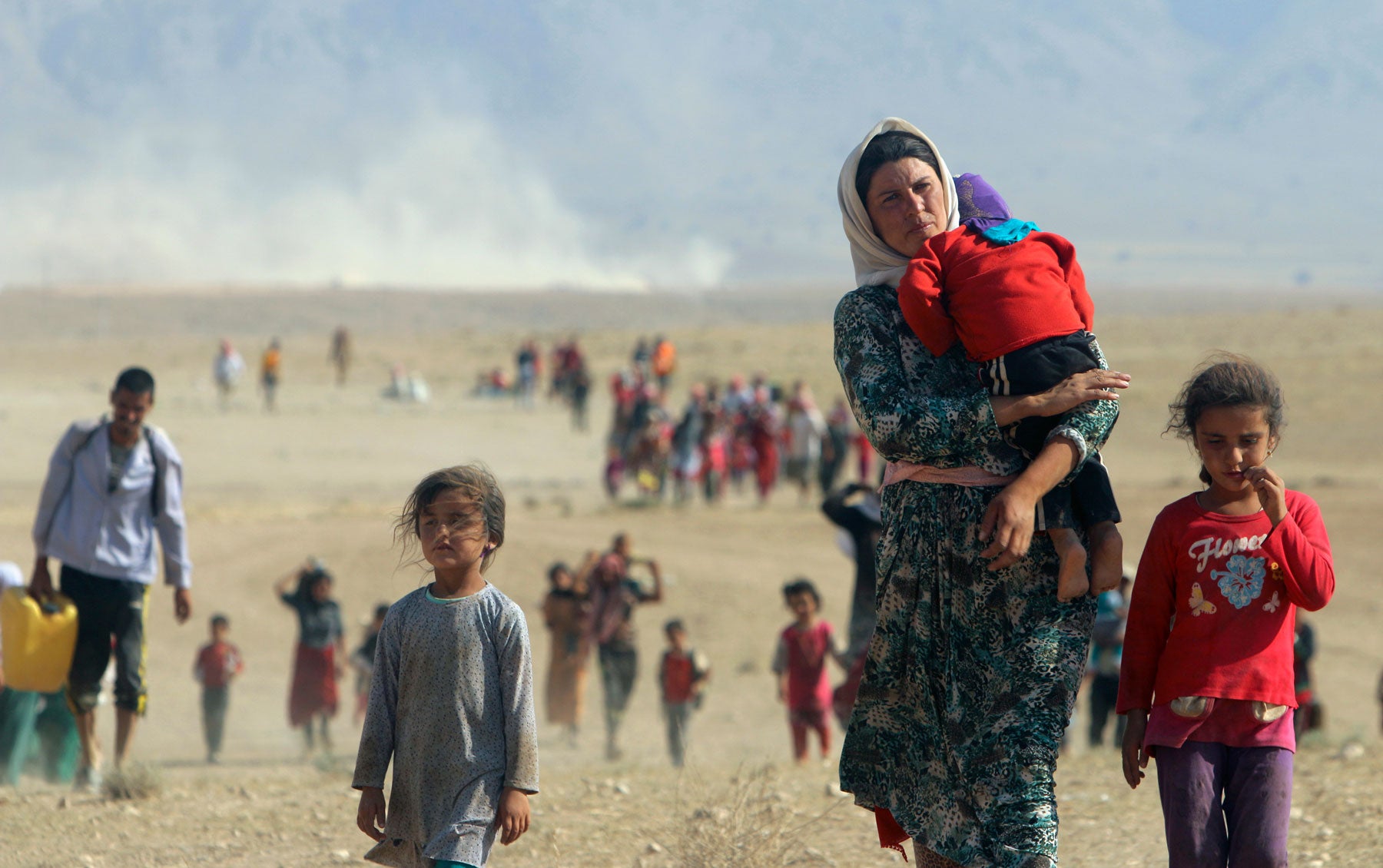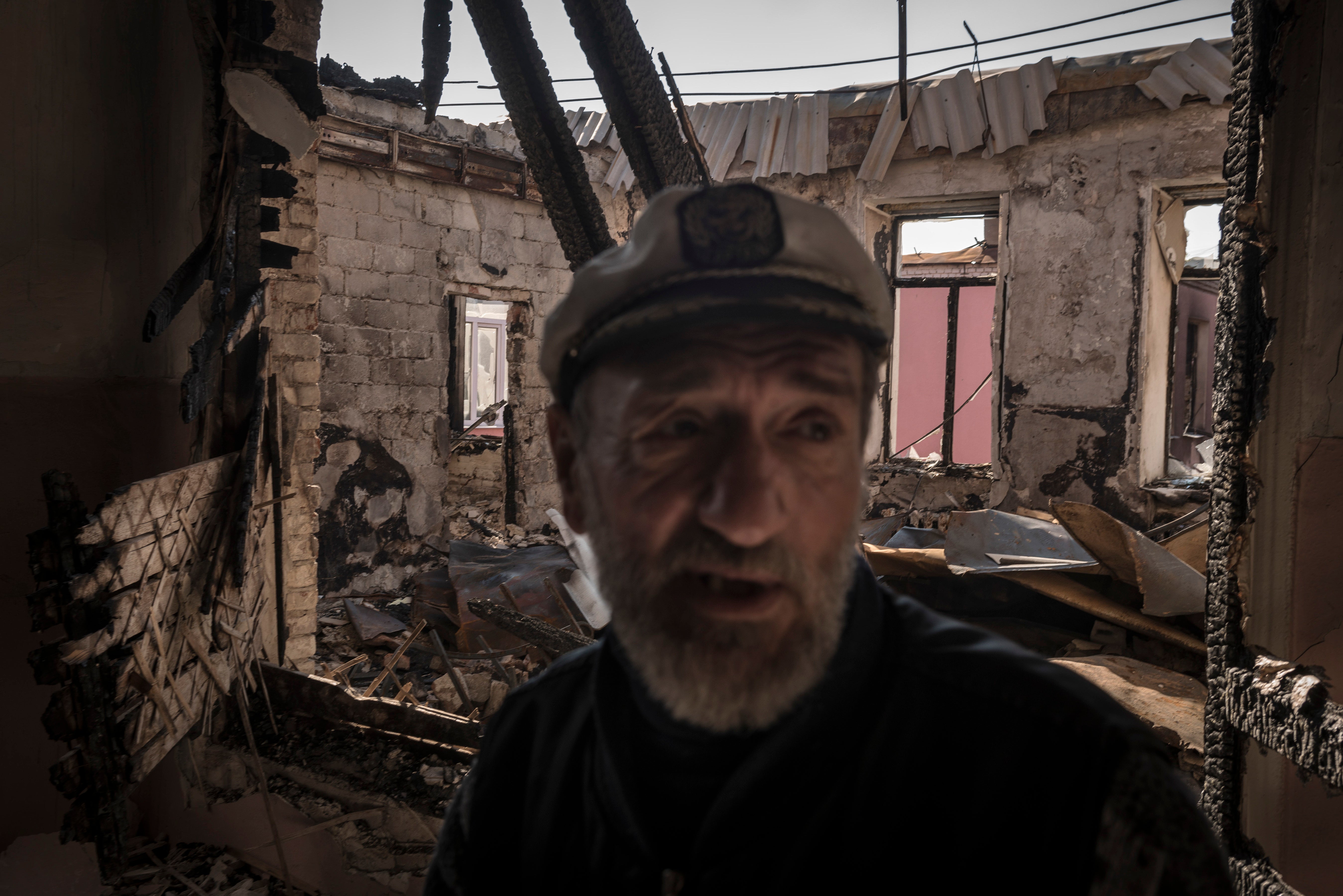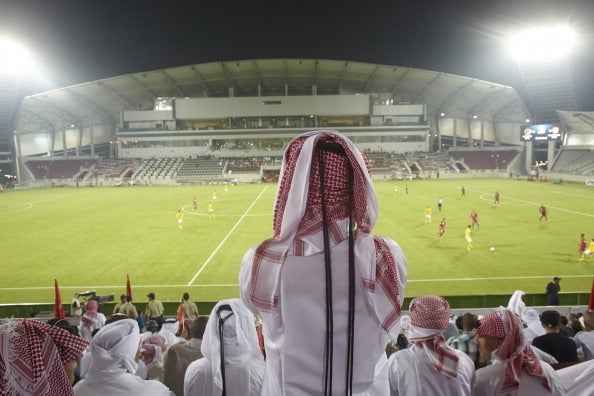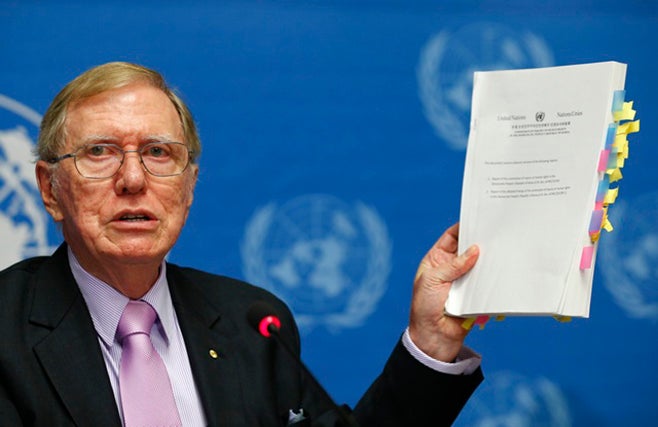Armenia’s human rights record remained uneven in 2014. Authorities continued to interfere with peaceful protests. Torture and ill-treatment in custody remained a problem, and investigations are ineffective, even when opened. Journalists continued to face pressure and violence. Although changes to alternative service to compulsory military service garnered praise, serious abuses in the army persist. Local groups documented forced psychiatric hospitalization. Violence and discrimination based on sexual orientation and gender identity are serious problems. The government has yet to lift unnecessary restrictions on access to pain medications for people with terminal illnesses.
Freedom of Assembly
Authorities interfered with free assembly throughout the year. According to human rights groups, police in the capital, Yerevan, detained at least 70 activists in the first half of 2014 during peaceful protests on pension reform, environmental concerns, utility prices, and other issues. Most people detained were released within a day; some faced administrative fines.
Three Yerevan metro employees alleged they were fired after participating in a February protest about controversial pension reforms and, at time of writing, were suing for reinstatement and lost wages. During a series of protests in June, Yerevan police detained activists protesting the demolition of the Afrikyan House, a historical monument. On June 23, Yerevan police detained 27 people protesting increased electricity tariffs. The Armenian ombudsperson found the police actions disproportionate. Authorities opened an investigation into police conduct and suspended several policemen pending inquiry.
Local human rights activists consider the prosecution and conviction of controversial political opposition leader Shant Harutyunyan and 13 of his supporters to be politically motivated. Authorities arrested the activists in November 2013 after clashes with police during an attempted march to the presidential administration building in Yerevan. In October, a Yerevan court convicted them of violence against the authorities and sentenced them to prison terms, ranging from one to seven years. Harutyunyan and activist Vardan Vardanyan allege police beat them immediately following their detention; the authorities refused to investigate.
In April, authorities charged Harutyunyan’s 15-year-old son with disorderly conduct for attempting to interfere with the arrest of his father; he was given a suspended four-year jail term in October.
During the first hearing of the activists’ trial in June, authorities denied journalists and family members access to the courtroom, falsely claiming overcrowding.
Torture and Ill-Treatment in Custody
Local human rights activists report the continued use of torture and ill-treatment in custody, including in police stations and pretrial detention to coerce confessions, as well as in prisons and other facilities. Some victims file complaints; many decline, fearing retaliation and further ill-treatment. The authorities do not always conduct thorough and impartial investigations.
According to the Armenian Helsinki Association, authorities have refused to investigate credible allegations that Yerevan police beat, pulled the hair of, and threatened to harm relatives of Aik Agamalyan, 16, to coerce a confession to an April 2013 murder. Agamalyan’s trial was ongoing at time of writing. Similarly, authorities and a Vanadzor court have refused to act on complaints by Karen Kurngurtsev that police ill-treated him after detaining him in October 2013 on murder charges. Kurngurtsev denies the charges; his trial was ongoing at time of writing.
After an April 4 visit, a public prison monitoring group reported that two inmates at the Artik Penitentiary alleged Gyumri police had ill-treated them in separate incidents to force confessions, including with beatings, kicking, and threats of rape. The investigation was ongoing at time of writing.
On June 12, police detained and beat Hayk Kyureghyan, who demonstrated outside a Yerevan court to support Harutyunyan and other activists on trial. After extensive media coverage of Kyureghyan’s allegations of ill-treatment, authorities opened an investigation, which was pending at time of writing.
Freedom of Expression
Media pluralism remains limited. Media nongovernmental organizations (NGOs) condemned a draft law that would hold media outlets responsible for libelous or insulting comments made in public forums, including social media, by anonymous or unidentified users.
The Committee to Protect Freedom of Expression reported that in the first half of 2014 journalists and media outlets continued to face threats and spurious law suits, and documented at least five incidents of physical violence against journalists.
For example, during the detentions of opposition activists on February 12, police seized video cameras from, and briefly detained, Ani and Sarkis Gevorgyan, siblings and journalists with the Chorrord Ishkhanutyun newspaper and iLur.am news site, respectively. While in custody, police erased their cameras, slapped Ani Gevorgyan, and seized her phone. Following a complaint by Gevorgyan, authorities opened a criminal investigation but concluded it in June, citing absence of a crime. Gevorgyan appealed. Organization for Security and Co-operation in Europe (OSCE) Representative on Freedom of the Media Dunja Mijatović expressed concern about the incident.
On June 24, journalists and others waited outside a Yerevan police department for the release of activists detained earlier that day. As police dispersed the crowd they also attacked several journalists. Police hit Ani Gevorgyan and Arpi Makhsudian of CivilNet.TV and smashed GALA TV cameraman Paylak Fahradian’s laptop. Police detained Sarkis Gevorgyan. Ani and Sarkis Gevorgyan filed a complaint; the investigation was ongoing at time of writing.
On June 26, a Yerevan court ordered Hraparak newspaper and Ilur.am news portal to disclose their sources as part of a criminal investigation involving a high-level police official. The OSCE representative on freedom of the media expressed concern about the ruling’s possible “chilling effect” and emphasized journalists’ right to protect sources as a key principle of investigative journalism and freedom of expression.
Alternative Military Service Reform and Army Abuses
According to the religious freedom monitoring group Forum 18, for the first time since 1993 there are no Jehovah’s Witnesses imprisoned for conscientious objection to military service. A June fact-finding mission report by the Parliamentary Assembly of the Council of Europe (PACE) found that 2013 changes to the alternative service law corrected long-standing problems and that most religious and social groups now accept the terms of alternative service.
However, other concerns related to the army persist. The Helsinki Citizens’ Assembly-Vanadzor received 42 complaints following the 2013 winter and 2014 summer call-ups about inadequate medical examinations and medical care for new conscripts, resulting in some conscripts with serious health problems being drafted. In some cases, conscripts with health problems were not referred to additional testing, or additional tests were only undertaken as a formality. Activists remain concerned about the thoroughness, transparency, and impartiality of investigations into non-combat deaths that are officially ruled accidents or suicides but where there may be evidence of violence.
Disability Rights
A Helsinki Citizen’s Assembly-Vanadzor office study of five state-run psychiatric hospitals based on over 300 interviews with medical staff and patients found that some people with actual or perceived psychosocial disabilities are confined in institutions without their informed consent. Under the civil code, a court can declare an individual as “mentally incompetent” without the person in question appearing. No independent mechanism exists to ensure that persons with psychosocial disabilities are not arbitrarily detained in psychiatric institutions.
A deputy ombudsman from the ombudsman’s office stated that the office frequently receives complaints about forced institutionalization in psychiatric hospitals and violence by staff, including beatings, use of restraints, and sedation.
Palliative Care
Armenia continues to discuss reforming its complicated and time-consuming prescription and procurement procedures for opioid medications. However, these shortcomings continue to obstruct the delivery of adequate palliative care, condemning most terminally ill patients to unnecessary suffering. Although morphine is a safe, effective, and inexpensive way to improve the lives of terminally ill people, oral morphine is unavailable in Armenia, and tight police controls on injectable opioids and restrictive policies on procurement, prescription, and disbursement violate many of the World Health Organization’s recommendations on palliative care.
Minority Rights
Local lesbian, gay, bisexual, and transgender (LGBT) activists reported that LGBT people continue to face discrimination, harassment, and physical violence. Hate speech against LGBT people, including by public officials, remains a serious issue. Gender identity and sexual orientation are not included in anti-discrimination or hate speech laws, limiting legal recourse for many crimes against LGBT people.
Iravunq newspaper published several online articles calling for LGBT people and organizations working to protect them to be excluded from public life and for their families to shun them. A May 17 article included a “blacklist” of 60 people with links to their social media pages. Several people named in the article requested a retraction, but the paper refused. Sixteen people filed lawsuits for damage to honor and dignity, but a court rejected their claims in October.
In December 2013, a court upheld the Education Ministry’s refusal, on privacy grounds, to respond to an information request filed by a nongovernmental organization regarding 20 teachers allegedly fired from public schools for holding minority religious views. Media had reported on the dismissals in 2012, citing the ministry’s claim that the teachers had been proselytizing in schools.
Key International Actors
Following its review of Armenia in May, the United Nations Committee on Economic, Social, and Cultural Rights underscored concerns about corruption, the lack of judicial independence, and need for a comprehensive anti-discrimination framework.
The PACE fact-finding mission report noted the improved political climate and progress toward Armenia’s fulfilment of its Council of Europe (CoE) membership obligations but also highlighted serious shortcomings, including the lack of judicial independence, abuses in the military, domestic violence, and hostility toward religious minorities and LGBT people.
In its March ‘European Neighborhood’ progress report on Armenia, the European Union noted concerns with implementation of legislation, poor prison conditions, and the “alarming” prevalence of domestic and gender-based violence. The report also found that the definition of torture does not comply with international standards.
A July joint statement by the UN, EU, OSCE, and CoE commended Armenia for adopting a Human Rights Action Plan as an opportunity for meaningful accountability and human rights progress.





